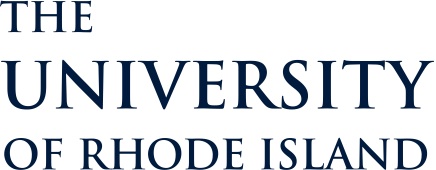Newswise — KINGSTON, R.I. – Oct. 4, 2023 – The University of Rhode Island Metcalf Institute today announced the appointment of Fara Warner, a veteran journalist with a deep background in climate communication and editorial leadership, as its new executive director. The Metcalf Institute, which is celebrating its 25th year of training, is a global leader in providing professional development for science journalists, scientists and science communicators to expand and elevate public discussion around environmental issues.
“Fara has a diverse background in the journalism industry and a proven track record of driving impactful storytelling initiatives. Her career journey testifies to her commitment to journalistic innovation, environmental reporting and solutions-driven narratives,” said John Kirby, dean of the College of the Environment and Life Sciences, which houses the institute. “In all her roles, she has consistently pushed the boundaries of storytelling methods, a skillset well-suited to her role at Metcalf Institute. We look forward to seeing the many ways her dedication, expertise and vision will inspire and drive the institute’s mission in the years to come.”
Warner, who starts in her new post Nov. 20, brings to the position more than 30 years’ experience as a journalist for such national and international publications as The Wall Street Journal, Fast Company, AOL Inc. and Dow Jones, along with expertise in climate and environmental communications and over 15 years of educating journalists as a visiting lecturer at various institutions.
“I’m honored to be joining the Metcalf Institute and excited to continue and expand on the work that it has been doing for 25 years,” said Warner. “The foundation that has been built to train journalists in how science and scientists work and, in turn, supporting scientists to amplify their research to wider audiences is phenomenal, especially in the area of inclusive science communication. I’m looking forward to building on that foundation as we face the global climate crisis. Now more than ever, the important work of the institute is invaluable as we work to inform the public about how to mitigate, adapt and take action to support their communities as we all face global climate change.”
Most recently, Warner has served as the climate director for Solutions Journalism Network, where she helped shift coverage of climate from “unsolvable and apocalyptic to rigorous evidence-based reporting” that impels communities to act.
“The institute’s mission to foster informed, inclusive conversation about environmental issues through training journalists and scientists can be seen as a significant part of this transformational change,” she said. “Throughout the media, we are beginning to see a shift in how we cover climate so that people know what to do and how to have an impact as their communities grapple with the effects of climate change globally.”
In her new role at the institute, she will oversee a program that has steadily grown in its mission to engage public audiences in conversations about science and environmental issues.
The Metcalf Institute was established in 1997 to honor Michael P. Metcalf, the late publisher of The Providence Journal who was known for his integrity, vision, and high journalistic standards. The institute has come to be known for a robust suite of programs, including its Annual Science Immersion Workshop for Journalists, science communication workshops and a career development program for early career researchers – programs that have benefited more than 3,500 journalists, scientists and science communicators around the globe.
One of its newest programs is the biennial Inclusive SciComm Symposium, furthering the institute’s commitment to amplify the voices of marginalized and underrepresented groups by supporting an international network of science communicators that promotes inclusion and equity. The 2023 symposium takes place virtually and in-person Oct. 19-21 on URI’s Kingston Campus.
With the growing climate crisis and the diminishing resources faced by many media outlets, Warner says she can think of no greater mission than the one Metcalf Institute advances. In the years ahead, the mission can be broadened by expanding training to journalists who cover beats not traditionally thought to be impacted by climate change and by supporting journalists in mediums and platforms that reach audiences traditional media no longer reach, she says.
“That’s what excites me about this moment,” Warner said. “Climate journalism is happening everywhere and we have an opportunity to support that work through training, fellowships and public programs to advance science learning.”
Warner, whose hiring was made possible through philanthropic support, succeeds the institute’s long-time executive director, Sunshine Menezes.
“Sunshine’s leadership has been instrumental in shaping the institute’s success for the last 17 years,” said Kirby. “We look forward to building upon this foundation under Fara’s leadership.”

